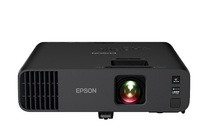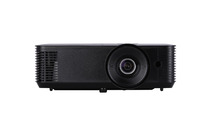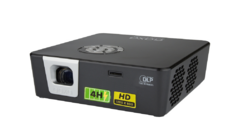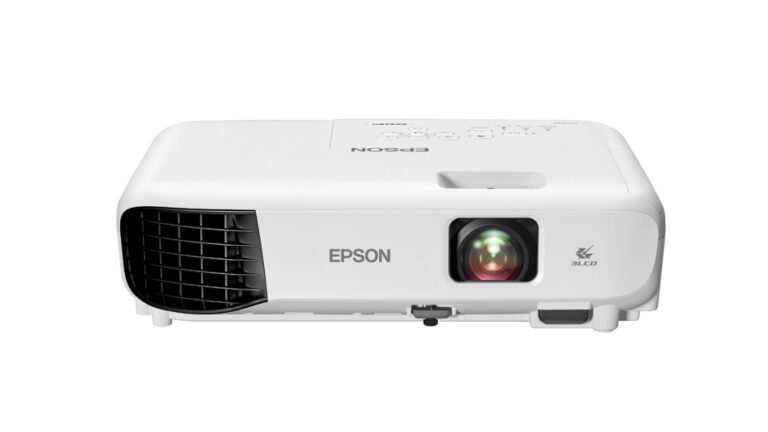
[ad_1]
The Epson EX3280 3LCD XGA Projector is portable, affordable, and enough of a light cannon to throw an image suitable for a midsize room with ambient light. The projector’s XGA (1,024-by-768-pixel) resolution is low by today’s standards, but sufficient to make text readable in most documents and more than enough for typical presentation slides. The Epson can also show images from two sources at once with a split screen, and even handles photorealistic images quite well for a business projector. At $499.99, it’s a solid value and our new Editors’ Choice among portable business and education projectors for midsize rooms.
The Virtues of 3LCD and the Limits of XGA
As with any projector that uses three imaging chips to produce color, including the Epson Pro EX9240 and Epson Pro EX10000, the EX3280’s 3LCD design gives it a guaranteed rainbow-artifact-free image along with matching color and white brightness (3,600 lumens apiece), which means that color images will be as bright as you would expect from the white brightness rating.
All three of these Epson projectors are part of the company’s portable business line, but the EX3280’s lower resolution compared with the other two is a key difference. The native XGA imaging chips necessarily limit the level of fine detail the projector can show, which makes it a poor choice for highly detailed line graphics or documents with unusually small fonts. However, the resolution is suitable for text in most documents, not to mention the even larger fonts of most presentation slides.

XGA resolution also gives the EX3280 a 4:3 aspect ratio, which means a 16:9 image will either be distorted (if you set it to fill the screen) or letterboxed (with black bars above and below the image). Shrinking a 16:9 image to fit on a 4:3 display reduces image height and readability along with it. It also lowers the effective brightness by blocking the light that would have fallen in those areas. On the other hand, the projector’s XGA resolution is also at least partly responsible for its lower price.
Similar Products
A clear plus for the EX3280 versus the two Epson Pros is that, although Epson calls all three portable and bundles a soft carrying case with each, the EX3280 is inarguably the most portable of the three. It weighs just 5.2 pounds and measures 11.9 by 9.3 by 3.2 inches. You can find projectors that are even smaller and lighter, such as the AAXA P6X Pico Projector, but the EX3280 is one of the most compact that can deliver a big enough image for a midsize room with ambient light.
Easy Setup But Limited Connections
Setting up the Epson EX3280 requires little more than finding a spot for it, pointing it at the screen, connecting the video cable and power cord, turning it on, and manually focusing. Some of that simplicity, and cost-saving, comes from cutting corners; in particular, there’s no optical zoom. The projector offers digital zoom, but that’s best avoided since using it can introduce scaling artifacts and will lower brightness. (Any digital zoom setting that delivers a smaller-than-full-size image is using only part of the imaging chips, which blocks some light.)
Connection options are minimal, limited to one VGA port, one HDMI port, and a USB Type-B port with plug-and-play compatibility for PCs and Macs. You can easily define the two-way split feature for any pair of the three inputs.
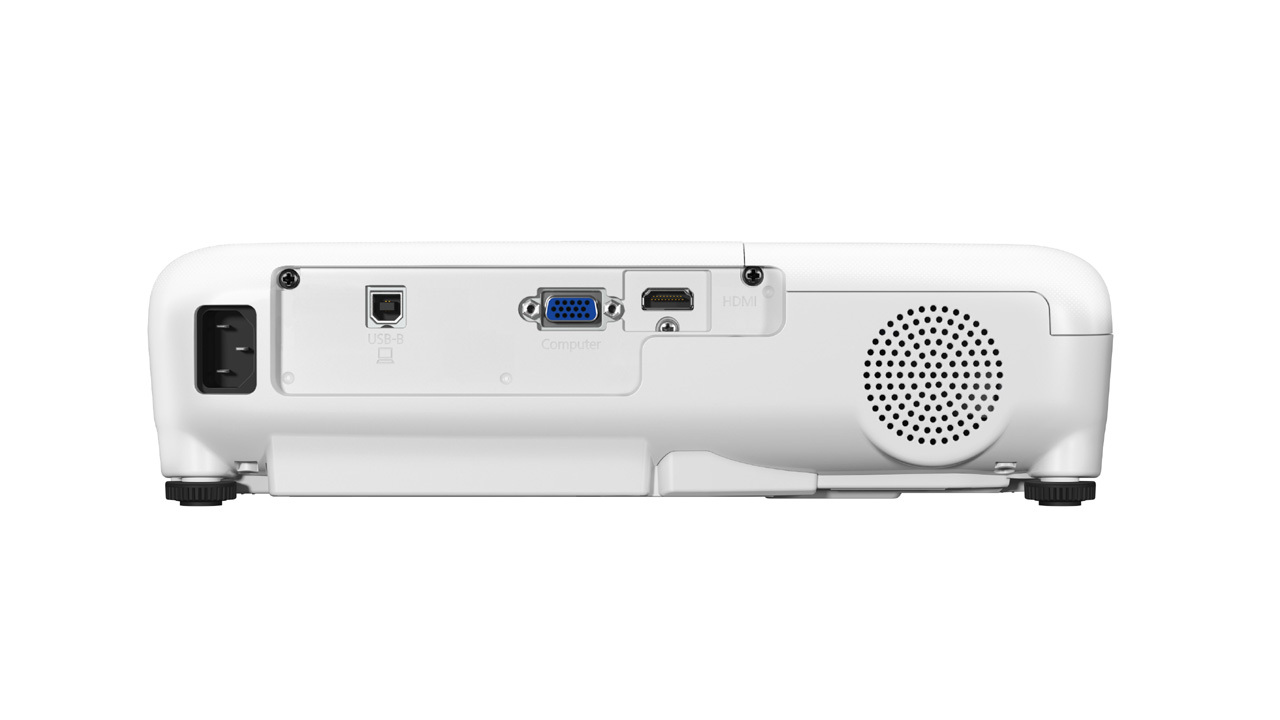
The onboard 2-watt mono speaker offers fair sound quality at high enough volume for a midsize room, though it becomes tinny at top volume. Unfortunately, there’s no audio out, so if you need higher volume or better sound quality you must connect an external sound system to your audio source rather than through the projector.
Suitable Sharpness, Vibrant Color, Watchable Video
The EX3280’s five color modes all deliver crisp images for highly readable text and eye-catching color for graphics. For presentations that include photorealistic images or video clips, however, or for watching a longer video or movie, the differences between the modes are more important.
Dynamic mode has a slight yellowish-green bias. The good news is that it’s much less obvious than the green bias typical of most projectors’ brightest modes, easy to see only in the brightest shades of grayscale images. In a dark room, the mode suffers from black backgrounds looking dark gray rather than black. But in moderate ambient light, which tends to wash out dark blacks with any projector, they look suitably black, so that’s not really an issue for a projector designed to be used with the lights on.
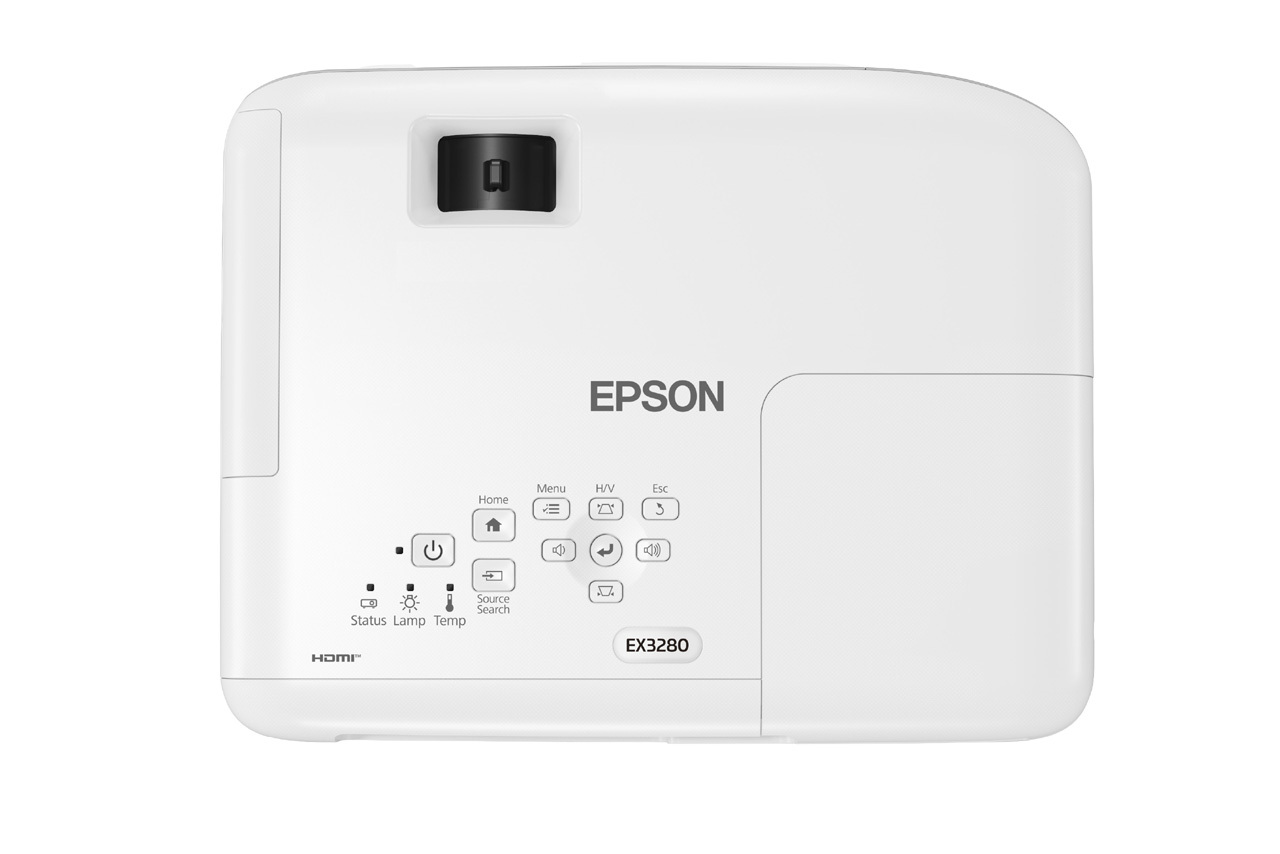
Most people will judge photorealistic images in Dynamic mode as offering suitably accurate color, even for skin tones. However, the brightness level is too high to deliver good contrast. The overall brightening of the image brings out shadow detail, but makes bright areas look overexposed.
The Epson’s Presentation mode resembles Dynamic for both graphics and photorealistic images, except that some colors are a little more saturated and a bit more accurate. It also shows an increased tendency for photorealistic images to look overexposed.
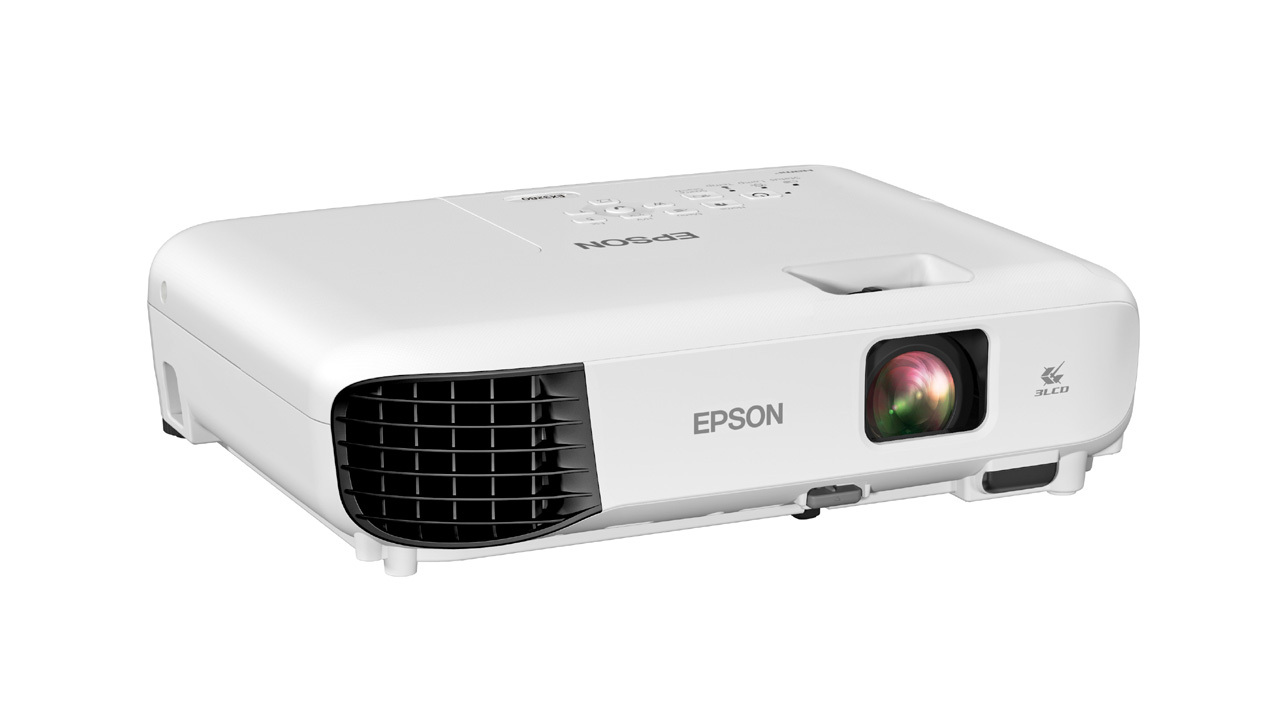
Cinema mode offers another step up from Presentation in color saturation and accuracy. For photorealistic images, it delivered much better contrast and almost no sense of overexposure, making it the obvious choice for presentations with lots of photos or video clips, assuming it’s bright enough for the image size and ambient light level. Brightly lit video and film scenes were highly watchable, though darker scenes tended to look overly dark and lose shadow detail.
The sRGB mode offers another small step up in color accuracy, but lower contrast than Cinema. Finally, BlackBoard adds enough of a red bias to be noticeable in some of the photos in our test suite.
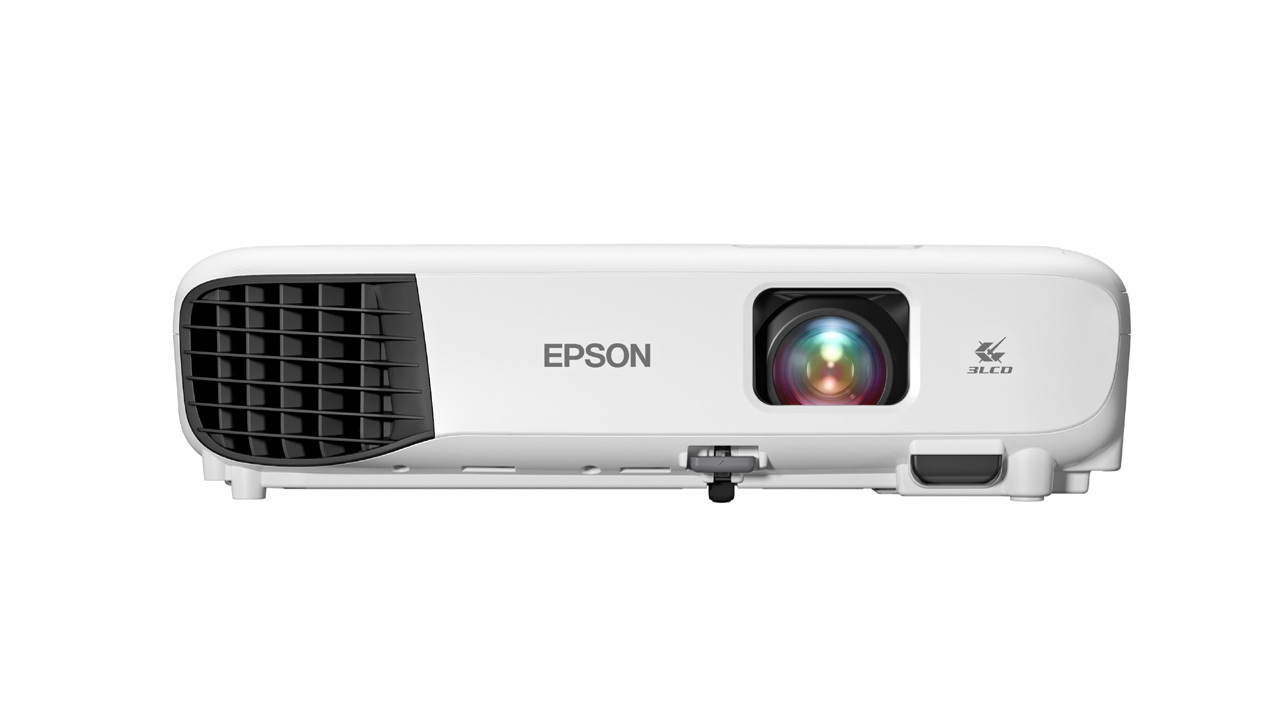
As a point of reference, 3,600 lumens is bright enough for a 260-inch diagonal, 1.0 gain, 4:3 screen in a dark room (according to the Society of Motion Picture and Television Engineers). In moderate ambient light, it’ll suffice for a 155-inch diagonal screen. Using my 90-inch 1.0 gain screen, the image was easily bright enough to use in moderate ambient light even in the lower-brightness Cinema mode.
Does Exactly What It’s Designed To
Although the Epson EX3280 earns high marks all around, it won’t appeal to everyone. If you consider anything less than 1080p resolution obsolete or actually need the higher resolution to show small fonts or detailed line drawings, you’ll want to look at projectors with 1080p native 1080p resolution such as the Epson Pro EX9240 and the DLP-based InFocus Genesis IN118BB, or consider the Epson Pro EX10000, which also claims 1080p despite its actual resolution being a little different. Alternatively, if you want an even more portable projector and don’t mind losing some brightness, you might prefer the AAXA P6X.
That said, the EX3280 does an excellent job for an XGA projector. It delivers suitably sharp text and other detail for its resolution; a bright image with eye-catching color for graphics; and highly watchable video, which covers all the core features for a business and education projector. It’s also inexpensive and easy to carry, whether from room to room or on a business trip. The combination is easily enough to earn it an Editors’ Choice award.
4.0

(Opens in a new window)
(Opens in a new window)
View More
The Epson EX3280 offers low resolution by today’s standards, but delivers vibrant color for presentations, sufficiently crisp images, and even watchable movies from a portable projector that’s bright enough to stand up to ambient light.
[ad_2]
Source link : https://www.pcmag.com/reviews/epson-ex3280-3lcd-xga-projector

